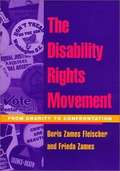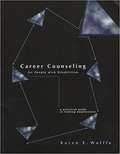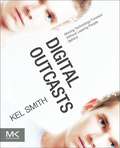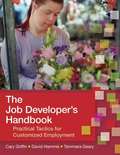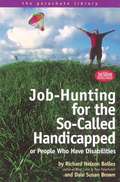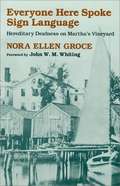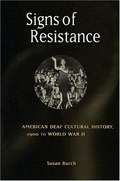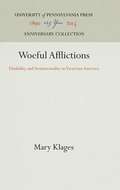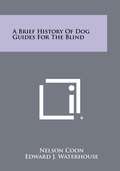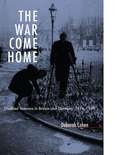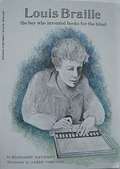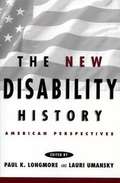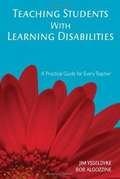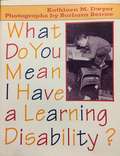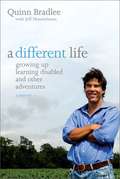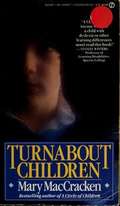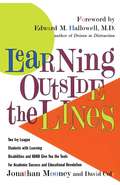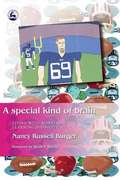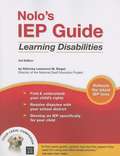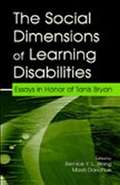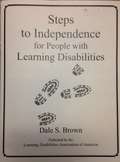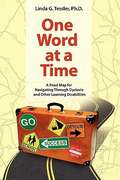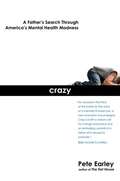Special Collections
Disability Collection
Description: Bookshare is pleased to offer a collection focused on the topic of disability and accessibility. #disability
- Table View
- List View
The Disability Rights Movement
by Doris Z. Fleischer and Freida ZamesBased on interviews with almost a hundred activists, this book provides a detailed history of the struggle for disability rights in the United States. It is a complex story of shifts in consciousness and shifts in policy, of changing focuses on particular disabilities such as blindness, deafness, polio, quadriplegia, psychiatric and developmental disabilities, chronic conditions (for example, cancer and heart disease), AIDS, and of activism and policymaking across disabilities.
Referring to the Americans with Disabilities Act as "every American's insurance policy," the authors recount the genesis of this civil rights approach to disability, from the almost forgotten disability activism of the 1930s, to the independent living movement of the 1970s, to the call for disability pride of the 1990s. Like other civil rights struggles, the disability rights movement took place in the streets and in the courts as activists fought for change in the schools, the workplace, and in the legal system. They continue to fight for effective access to the necessities of everyday life-to telephones, buses, planes, public buildings, restaurants, and toilets.
The history of disability rights mirrors the history of the country. Each World War sparked changes in disability policy and changes in medical technology as veterans without limbs and with other disabilities returned home. The empowerment of people with disabilities has become another chapter in the struggles over identity politics that began in the 1960s.
Today, with the expanding ability of people with disabilities to enter the workforce and a growing elderly population, issues like longterm care are becoming increasingly significant at a time when HMOs are trying to contain health care expenditures.
Career Counseling for People with Disabilities
by Karen E. WolffeA text for use in courses in rehabilitation counseling, educational psychology, and special education, also useful for practicing counselors and educators. Section I introduces the field, types of clients, theories, and legislation. Section II details five key career counseling content areas, and Section III addresses disability- specific considerations. Section IV describes local, state, and national resources and lists helpful phone numbers. Includes chapter-opening vignettes and application activities, and five appendices of reproducible handouts to use with clients. Annotation copyrighted by Book News, Inc., Portland, OR
Digital Outcasts
by Kel SmithThe blind person who tries to make an online purchase. The young girl who cannot speak due to a cognitive disability. The man confined to his home due to permanent injury. The single mother with a long-term illness who struggles to feed her family. With one in seven people worldwide currently living with a disability, the term "outcast" covers numerous scenarios. Digital outcasts rely on technology for everyday services that many people take for granted. However, poorly designed products risk alienating this important (and growing) population. Through a "grass roots" approach to innovation, digital outcasts are gradually taking action to transform their lives and communities. This emerging trend provides exciting learning opportunities for all of us. Citing real-world case studies from healthcare to social science, this book examines the emerging legal and cultural impact of inclusive design. Gain a better understanding of how people with disabilities use technology Discover pitfalls and approaches to help you stay current in your UX practices Anticipate a future in which ambient benefit can be achieved for people of all abilities and backgrounds.
The Job Developer's Handbook
by Cary Griffin and David Hammis and Tammara GearyOne of the most practical employment books available, this forward-thinking guide walks employment specialists step by step through customized job development for people with disabilities, revealing the best ways to build a satisfying, meaningful job around a person's preferences, skills, and goals. Internationally known for their innovative, proactive job development strategies, the authors motivate readers to expand the way they think about employment opportunities and develop creative solutions.
Readers will get fresh, proven tips and ideas for every aspect of job development for youth and adults with significant support needs:
To make each part of job development easier, the book arms readers with practical content they can really use: easy-to-follow, step-by-step guidelines; checklists of critical questions to answer; success stories in both urban and rural settings; and sample scenarios, dialogues, and interview questions.
Equally useful to veteran professionals and those just starting out, this compelling guidebook breathes new life into the job development process and helps readers imagine a wider world of employment opportunities for people with disabilities.
Job-Hunting for the So-Called Handicapped (Second Edition)
by Richard Nelson Bolles and Dale S. BrownRichard Bolles' What Color is your Parachute? has helped millions of readers find their path in life, and now his creative approach to job-hunting is brought to bear on the specific challenges faced by job hunters with disabilities. In Job-Hunting for the So-Called HandicappedM/i>, Bolles and Dale Susan Brown guide readers through the often-frustrating, but ultimately rewarding process of securing independence in their lives and personal satisfaction in their careers. The authors begin by demystifying the intricacies of the ADA, describing in clear terms what the act does and does not guarantee disabled job hunters, and then move on to job-hunting strategies tailored specifically to people with disabilities.
Everyone Here Spoke Sign Language
by Nora E. GroceFrom the seventeenth century to the early years of the twentieth, the population of Martha's Vineyard manifested an extremely high rate of profound hereditary deafness.
In stark contrast to the experience of most deaf people in our own society, the Vineyarders who were born deaf were so thoroughly integrated into the daily life of the community that they were not seen-- and did not see themselves-- as handicapped or as a group apart. Deaf people were included in all aspects of life, such as town politics, jobs, church affairs, and social life.
How was this possible? On the Vineyard, hearing and deaf islanders alike grew up speaking sign language. This unique sociolinguistic adaptation meant that the usual barriers to communication between the hearing and the deaf, which so isolate many deaf people today, did not exist.
Signs of Resistance
by Paul K. Longmore and Lauri Umansky and Susan BurchDuring the early nineteenth century, American schools for deaf education regarded sign language as the "natural language" of deaf people, using it as the principal mode of instruction and communication. These schools inadvertently became the seedbeds of an emerging Deaf community and culture. But by mid-century, an oralist movement developed that sought to suppress sign language, removing Deaf teachers and requiring deaf people to learn speech and lip reading. Historians have all assumed that in the early decades of the twentieth century oralism triumphed overwhelmingly.
Susan Burch shows us that everyone has it wrong; Deaf students, teachers, and staff consistently and creatively subverted oralist policies and goals within the schools. Ultimately, the efforts to assimilate Deaf people resulted in fortifying their ties to a separate Deaf cultural community.
In Signs of Resistance, Susan Burch persuasively reinterprets early twentieth century Deaf history. Using community sources such as Deaf newspapers, memoirs, films, and oral (sign language) interviews, Burch shows how the Deaf community mobilized to defend sign language, increased its political activism, and clarified its cultural values. In the process, a collective Deaf consciousness, identity, and political organization were formed.
Woeful Afflictions
by Mary KlagesFrom Tiny Tim to Helen Keller, disabled people in the nineteenth century were portrayed in sentimental terms, as afflicted beings whose sufferings afforded able-bodied people opportunities to practice empathy and compassion. In all kinds of representations of disability, from popular fiction to the reports of institutions established for the education and rehabilitation of disabled people, the equation of disability and sentimentality served a variety of social functions, from ensuring the continued existence of a sympathetic sensibility in a hard-hearted, market-driven world, to asserting the selfhood and equality of disabled adults. Unique in its focus on blindness and its examination of the interplay between institutional discourse and popular literature, Woeful Afflictions offers a detailed historical analysis of the types of cultural work performed by sentimental representations of disability in public reports and lectures, exhibitions, novels, stories, poems, autobiographical writings, and popular media portrayals from the 1830s through the 1890s in the United States. Woeful Afflictions combines contemporary scholarship on sentimentalism with the most recent works on the cultural meanings of disability to argue that sentimentalism, with its emphasis on creating emotional identifications between texts and readers, both reinforces existing associations between disability and otherness and works to rewrite those associations in portraying disabled people, in their emotional capacities, as no different from the able-bodied. This book will interest anyone concerned with disability studies and the social construction of the body, with the history of education and of public institutional care in the United States, and with autobiographical writings.
A Brief History of Dog Guides for the Blind
by Nelson CoonThis small book originally an article written by the reference librarian at the Blindiana Library at Perkins School for the Blind highlights the varied and long history of dog guides for blind people. From Pompae, to Japan, from the 15th centure to biblical times the author depicts and writes about dogs guiding blind people. Illustrated with descriptive paintings and texts from various books, this book is a treasure for anyone who loves dogs, and or history.
The War Come Home
by Deborah Cohen"This impressive book offers a powerful set of insights into the lasting effects of the First World War and the different ways in which belligerent states came to terms with the war's consequences."
Louis Braille
by Margaret Davidson and CompereA poignant story of the man who developed the Braille system of printing for the blind.
The New Disability History
by Paul K. Longmore and Lauri UmanskyIn a series of scholarly but highly readable essays, this book opens discussion on the role of disabled people in American history. It also examines how history has been affected by perceptions of disability. For example, one article looks at the ways disability has been used to strengthen prejudice against particular ethnic groups and to justify discrimination - "experts" have often claimed that one or another group of immigrants is genetically inferior and prone to mental retardation or physical frailty. One essay is based on the Civil War letters of a deaf man to his family. Another looks at the ways Helen Keller's Socialist beliefs were stifled by those around her.
Teaching Students with Learning Disabilities
by Bob Algozzine and James E. YsseldykeThe characteristics associated with LD, and practical teaching strategies proven to increase the success rate of students both inside and outside the classroom.
What Do You Mean I Have a Learning Disability?
by Kathleen M. DwyerTen-year-old Jimmy just accepts the fact that other kids can do things better than he can. It's always been that way--but now Jimmy is starting to think there must be a reason. One day he whispers to his cat, "I'm so stupid. I know I am." This true story has a happy ending. One of Jimmy's teachers encouraged his parents to have Jimmy tested, and it turned out that he had a learning disability. Hard work and perseverance, and the support of his family, helped Jimmy overcome his disability. For children who are learning disabled, and for their families and friends, this inspiring book offers encouragement and support in a shared effort.
A Different Life
by Quinn Bradlee and Jeff HimmelmanBorn with a hole in his heart that required invasive surgery when he was only three months old, Quinn Bradlee suffered from a battery of illnesses: seizures, migraines, fevers from an early age. But it wasn't until he was fourteen that Bradlee was correctly diagnosed with Velo-Cardio-Facial Syndrome (VCFS), a widespread, little-understood disorder that is expressed through a wide range of physical ailments and learning disabilities. Ten percent of the population is affected by a learning disability, but few of us understand what being learning disabled (LD) is really like. In this funny, moving, and often irreverent book, Bradlee tells his own inspirational story of growing up as an LD kid and of doing so as the child of larger-than-life, formidably accomplished parents: long-time Washington Post executive editor Ben Bradlee and bestselling author Sally Quinn. From his difficulties reading social cues, to his cringe-worthy loss of sexual innocence, Bradlee describes the challenges and joys of living "a different life" with disarming candor and humor. By the end of A Different Life he will have become, if not your best friend, one of your favorite people.
Turnabout Children
by Mary MaccrackenAfter receiving her masters degree in special education, the author decides to go into private practice as a learning-disabilities specialist. In this book, she tells of five of the children she worked with, and the techniques she used to help each child overcome his or her unique set of difficulties.
Learning Outside the Lines
by David Cole and Jonathan MooneyEvery day, your school, your teachers, and even your peers draw lines to measure and standardize intelligence. They decide what criteria make one person smart and another person stupid. They decide who will succeed and who will just get by. Perhaps you find yourself outside the norm, because you learn differently -- but, unlike your classmates, you have no system in place that consistently supports your ability and desire to learn. Simply put, you are considered lazy and stupid. You are expected to fail. Learning Outside the Lines is written by two such "academic failures" -- that is, two academic failures who graduated from Brown University at the top of their class. Jonathan Mooney and David Cole teach you how to take control of your education and find true success -- and they offer all the reasons why you should persevere.
A Special Kind Of Brain
by Nancy Russell BurgerSharing the experience of bringing up a child with nonverbal learning disability (NLD), this warm and accessible book offers advice on subjects ranging across diagnosis and therapy, children's interaction with each other, suitable activities for a child with NLD and how to discuss NLD with children. An essential guide, this book will reassure, advise and inform parents and professionals who work with children with NLD.
Looking Beyond Limitations
by Joan Kilbourne and Steve KöehmstedtAn investigation into the ways in which educational institutions disable students with learning disabilities.
IEP Guide
by Lawrence SiegelUsing plain language, Siegel, a special education attorney, explains assessments, goals and objectives, eligibility requirements, and other IEP issues in this resource for parents of children with learning disabilities. He walks through the entire IEP process, providing instructions, checklists, sample forms and letters, and numerous suggestions for specific actions to take. He gives advice on finding and understanding information on a child's rights, and tells how to prepare for IEP meetings and how to resolve disputes with the school district. Appendices list relevant laws and regulations, federal and state departments of education, and support and advocacy groups. Annotation ©2004 Book News, Inc., Portland, OR (booknews.com)
The Social Dimensions of Learning Disabilities
by Mavis Donahue and Bernice Y. L. WongEssays discussiing the social aspects of Learning Disabilities
Steps to Independence for People with Learning Disabilities
by Dale S. BrownThe booklet is designed to help learning disabled (LD) adults become economically independent and fulfill their potential. Introductory chapters define LD and specify such types of LD as auditory perceptual problems, catastrophic responses, directional problems, disinhibition, perceptual problems, and short term memory problems. Psychological effects of never being diagnosed are noted as well as potential dangers of being labeled. Suggestions for securing a professional diagnosis and for diagnosing one's self are given. Parents are encouraged to find practical solutions to family life problems and to teach independent living skills. Vocational aspects are examined, including searching for a job, choosing the right one, and being proud of one's job. Ideas are listed for analyzing strengths and weaknesses to overcome one's own handicap. The importance of social skills training is stressed. Practical coping strategies for dealing with perceptual problems (visual perception, dyslexia, and auditory perception) and central nervous system disorganization (directionality, hyperactivity, disinhibition, catastrophic response, and perseveration) are addressed. A final chapter lists sources of further information, professional help, and self help groups.
One Word at a Time
by Linda G. TesslerA unique and groundbreaking resource guide that is informative, insightful and inspiring, this book is Tessler's brave and honest account of her lifelong struggles with dyslexia. Culled from her experiences as a psychologist and scholar specializing in learning disabilities and as the parent of a son who struggles with dyslexia, she brings together sound psychological principles with personal knowledge.
College Students with Learning Disabilities
by Susan A. VogelThis handbook answers such questions as: What is a learning disability? What technology might help a student with an LD? How can someone get through college with an LD? This book provides clear answers to questions which admissions officers often ask. It also includes several appendices listing resources which can help LD students do well in college and other higher education settings. Although teachers are not mentioned in the title, they may find this book to be a welcome resource, especially when mentoring highschool students.
Crazy
by Pete EarleyFrom the Publisher: Pete Earley had no idea. He'd been a journalist for over thirty years, and the author of several award-winning-even bestselling-nonfiction books about crime and punishment and society. Yet he'd always been on the outside looking in. He had no idea what it was like to be on the inside looking out until his son, Mike, was declared mentally ill, and Earley was thrown headlong into the maze of contradictions, disparities, and catch-22s that is America's mental health system. The more Earley dug, the more he uncovered the bigger picture: Our nation's prisons have become our new mental hospitals. Crazy tells two stories. The first is his son's. The second describes what Earley learned during a yearlong investigation inside the Miami-Dade County jail, where he was given complete, unrestricted access. There, and in the surrounding community, he shadowed inmates and patients; interviewed correctional officers, public defenders, prosecutors, judges, mental-health professionals, and the police; talked with parents, siblings, and spouses; consulted historians, civil rights lawyers, and legislators. The result is both a remarkable piece of investigative journalism, and a wake-up call-a portrait that could serve as a snapshot of any community in America.
